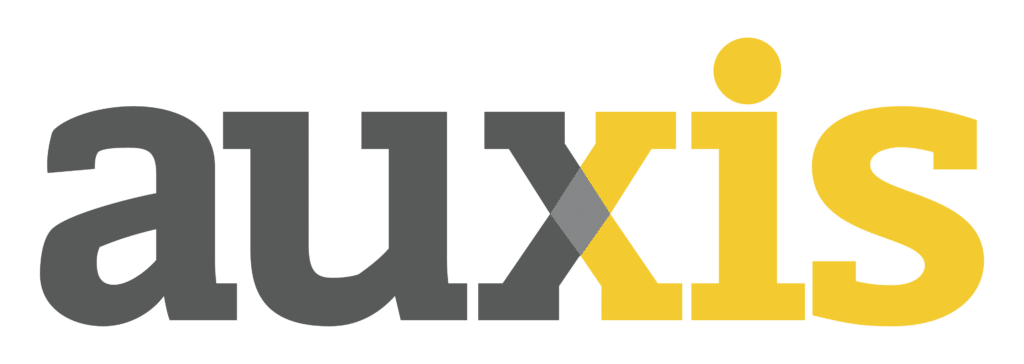Like many of their counterparts, HR teams spend a large portion of their days executing repetitive, low-value tasks that prevent them from focusing on the strategic activities that matter, including recruiting, talent development, and retention strategies.
A Level 1 HR Help Desk organization establishes a first line of support for all your employee inquiries – taking a great first step toward freeing up your more experienced HR professionals to work on higher-value projects.
Even if your organization is already working on automating manual HR processes, the reality is that achieving 100% automation in an end-to-end process is a utopia. You will still need to monitor performance, work on exceptions, and continue executing tasks that didn’t make financial sense or were just not feasible to automate.
The concept of an HR Service Desk is not new, especially for larger organizations with thousands of daily HR requests concerning employee benefits, payroll, reference letters, and more. However, there are still multiple large and midmarket organizations that are growing fast and looking for ways to scale that have not yet implemented this type of best practice.
In this article, we will provide you with 5 key reasons that you should consider implementing a Level 1 HR Help Desk, the same way your IT Department has implemented one for IT-related end-user support needs.
1. An HR Help Desk offers faster, better service for your employees.
Without a formal Level 1 HR Help Desk structure, employees lack a clear process for where to go whenever they have HR questions. If they are friends with HR managers, they may just reach out to them directly – or ask questions to the wrong people who cannot help them.
Even worse, they may be reaching out to HR managers who have the answer but are too busy to respond in a timely manner. Without defined SLAs, response times, or an HR ticketing system to track requests, there is no guarantee that employees are supported with a consistent level of quality and timeliness.
Unfortunately, at a time when HR executives ranked hiring, retention, and improving company culture as their most pressing challenges in a 2022 Human Resource Executive (HRE) survey, slow HR response has the opposite effect – driving employee frustration and disengagement.
An HRMorning report states that a concerning 75% of employees believe their HR Department doesn’t care about their needs.
Once you establish an effective HR Service Desk, all employees will receive the same level of HR service – and formal SLAs and KPIs will be defined to measure and improve performance. With a dedicated team trained and measured on response times, first-call resolution rates, and customer satisfaction, you can only expect overall support services to improve.
And with that, the perception of the HR Department among its employees.
2. An HR Help Desk provides the lowest cost to serve.
As you centralize, standardize, and document the process scope of the HR Help Desk Level 1 team, you will be able to staff these positions at a lower cost than before – equivalent to more junior HR analysts or help desk/customer service agents.
For instance, nearshoring your HR Help Desk to leading Latin American markets like Costa Rica and Colombia delivers an average of 30-60% labor arbitrage compared to hiring similar roles in the U.S. Nearshoring also helps HR lower costs without sacrificing quality – delivering the highly skilled talent and time zone, language, and cultural similarities that are essential to building a high-performance Level 1 Help Desk trained in your specific HR policies and procedures.
The growth of the nearshore market in supporting the Americas has established a strong base of resources with related experience as well, making talent acquisition less of a concern.
Suddenly, your HR professionals (e.g., benefits, recruiting, payroll, etc.) with more years of experience will be able to spend their time on more complex activities that are more applicable to their cost and skills.
The other reason why your overall cost to serve will be lower is because you will be measuring productivity and KPIs on an ongoing basis. With higher visibility and a continuous improvement mindset, the cost to serve tends to improve given the increased efficiencies.
3. An HR Help Desk improves your knowledge base and processes to scale for success.
As mentioned previously, having an HR Help Desk will force you to build and maintain detailed process documentation and training materials. This level of process maturity will allow you to improve controls, expedite your training and onboarding process, and ultimately scale the organization to absorb growth more effectively.
The advantages of improving these processes extend beyond operational efficiency. For instance: as 72% of HR executives worry about losing talent this year, a recent survey by Paychex indicates that employees’ onboarding experiences directly correlate to how quickly they plan to quit.
Among the alarming 50% of new hires who planned to leave their employers soon, 74% described their onboarding experience as boring, 66% called it confusing, and 64% saw it as a failure.
With the best practices and documentation to deliver a streamlined and supportive onboarding process, an HR Help Desk can help ensure employees have the tools, training, and positive feelings toward your organization they need to drive employee engagement.

4. An HR Help Desk allows your internal HR team to focus on the activities that matter.
Human Resources organizations are facing more challenges than ever before. And HR issues are coming from all directions: from talent shortages and increasing demands to bring innovation to recruiting processes, to expanded benefits and work-life balance, to differentiating the organization as an employer of choice in the market and continuously working on upskilling, training, and providing career growth opportunities to existing employees.
But amidst mounting pressure for HR teams to take on a more strategic role, tedious administrative processes consume most of the bandwidth of HR staff. A whopping 92% of HR leaders say the amount of work they need to undertake stands as a top barrier to success in 2024, according to a SHRM (Society for Human Resource Management) report.
Having an HR Level 1 Help Desk will give back time and focus to your most skilled, creative HR staff to develop high-impact programs across critical areas such as Talent Development, Career Growth Plans, Employer Branding, and Automation & Best Practices in the industry.
5. An HR Help Desk drives better retention for your HR team.
With talent challenges as a front-and-center concern across industries, an effective HR Department has become highly critical to business success. But the immense pressure is making HR teams burnout a real issue, with Human Resources generating one of the highest turnover rates of any profession over the past three years, according to a LinkedIn report.
Between July 2021 and June 2022 alone, HR experienced a global turnover rate of nearly 15% – the highest of any job function. That’s about 35% higher than the overall turnover rate of 10.6%.
Freeing up your HR team to work on more interesting work will naturally translate into higher employee satisfaction, a sense of realization and purpose, and, therefore, higher retention. Voilà!
How do I get started building my HR Service Desk?
If any of these reasons resonate with you, the next step is to understand how to effectively implement this model in your organization.
Here’s a list of key questions you should start addressing as part of your planning and design phase:
- Do I have enough scale to justify an HR Service Desk?
- How many people do I need to staff in my HR Service Desk based on my number of employees and expected volumes?
- What systems and communication channels do I need to implement for success?
- What processes should be in scope for my HR Service Desk?
- What type of process documentation and knowledge base do I need to build to effectively train the new HR Service Desk organization?
- What are the key industry metrics and KPIs that I should establish to measure the performance of the team?
- What languages and hours of operation do I need to support?
- How do I redesign the roles and activities of the rest of my HR organization once the HR Service Desk has been carved out?
- Should I try to build this HR Service Desk organization in-house or leverage a BPO HR Outsourcing Partner with previous experience?
- What is the cost and business case?
Talk to one of our HR Transformation Experts Today!
With over 26 years of shared services and back office transformation experience, Auxis can help you answer all these questions and build a customized HR Help Desk model that meets your needs.
You can schedule a consultation with one of our HR experts today through this link.
Not ready for a consultation?
Check out: HR Outsourcing Case Study: Service Desk Achieves 99.6% Customer Satisfaction





